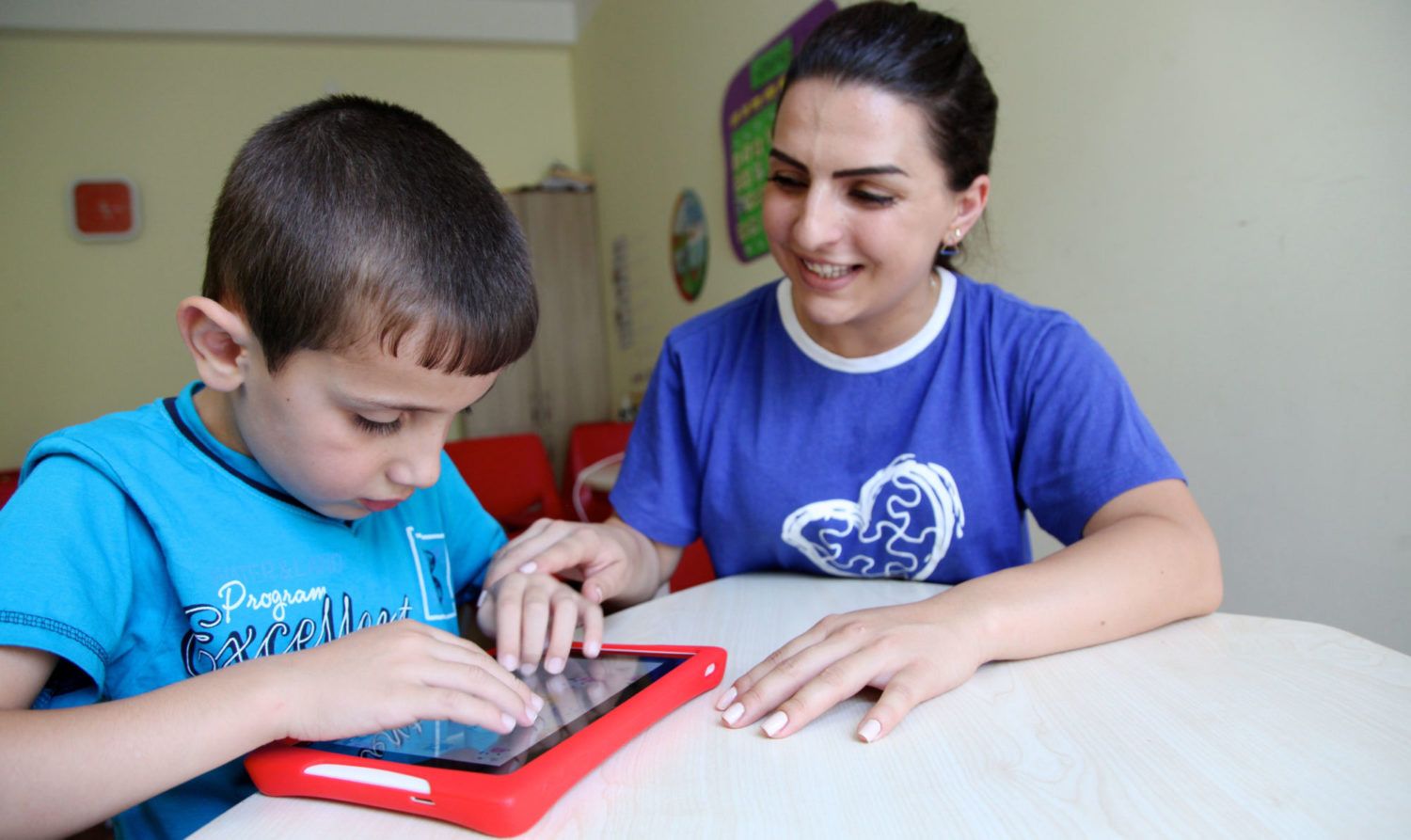7 March 2019 – At least 75 per cent of the estimated 5.1 million children living with disabilities in Eastern and Central Europe and Central Asia are excluded from quality, inclusive education, UNICEF said today.
Although there is a lack of robust data, available evidence shows that millions of children with disabilities never enter school. For those who do enrol, they are less likely to benefit from learning or complete primary or secondary education. Hundreds of thousands of children with disabilities in the Region remain in ‘special’ schools, segregated from their peers and communities.
“This is a tragic waste of potential – for these children, their families, national economies and society,” said UNICEF Regional Director for Europe and Central Asia, Ms. Afshan Khan. “Today, UNICEF is calling for investments in quality availability and affordability of assistive technologies, as these products have the potential to drastically increase the number of children with disabilities accessing their fundamental right to education.”
Assistive technologies – from special readers and tablets, to lightweight and inexpensive wheelchairs, to brain-computer interface technology – are tools that support children with disabilities to gain more independence, attend school and participate in their communities.
Such technologies are being displayed at a special, two-day exhibit which opened today at the Palais des Nations in Geneva. The exhibit is showcasing innovative assistive technologies that help children with disabilities access school.
“For a child living with a disability, access to assistive technology can mean the difference between a life of exclusion and isolation to getting an education and reaching their full potential,” added Khan, speaking at the exhibit opening.
The exact proportion of children with access to assistive technologies and products is unknown, but in low-income countries, it is estimated to range from five to fifteen per cent. Barriers that prevent children from accessing assistive technologies include lack of awareness that the technologies exist, lack of production and servicing, few personnel properly trained to use and maintain the technologies, lack of governance as well as high costs.
The Convention on the Rights of Persons with Disabilities urges Governments to provide affordable assistive technologies to all people who could benefit from them. To help children with disabilities access assistive technologies and products, UNICEF has set out key recommendations for Governments, private sector and other key stakeholders:
- Undertake more research to better understand how assistive technology can support children and the types of technology currently available.
- Adopt legislation and policies that help ensure all children can access assistive technologies.
- Provide funding and subsidies to make assistive technology less expensive and accessible to all children, including the most vulnerable.
- Establish systems to ensure the supply, quality and service.
- Train personnel so that technologies can be used, maintained, updated and repaired.
- Involve children with disabilities and their families in the development of policies and design of assistive technology services and products.
The full list of technologies being featured at the Interactive exhibit on innovative assistive technologies to support children with disabilities access school can be accessed here.
ENDS
Notes to editors:
Download photos and b-roll here.
For more information, please contact:
Morwenna Darby, 020 7375 6124, [email protected]
Unicef UK Media Team, 0207 375 6030, [email protected]
About Unicef
Unicef is the world’s leading organisation for children, promoting the rights and wellbeing of every child, in everything we do. Together with our partners, we work in 190 countries and territories to translate that commitment into practical action, focusing special effort on reaching the most vulnerable and excluded children, to the benefit of all children, everywhere.
Unicef UK raises funds to protect children in danger, transform their lives and build a safer world for tomorrow’s children. As a registered charity we raise funds through donations from individuals, organisations and companies and we lobby and campaign to keep children safe. Unicef UK also runs programmes in schools, hospitals and with local authorities in the UK.
For more information please visit unicef.org.uk


